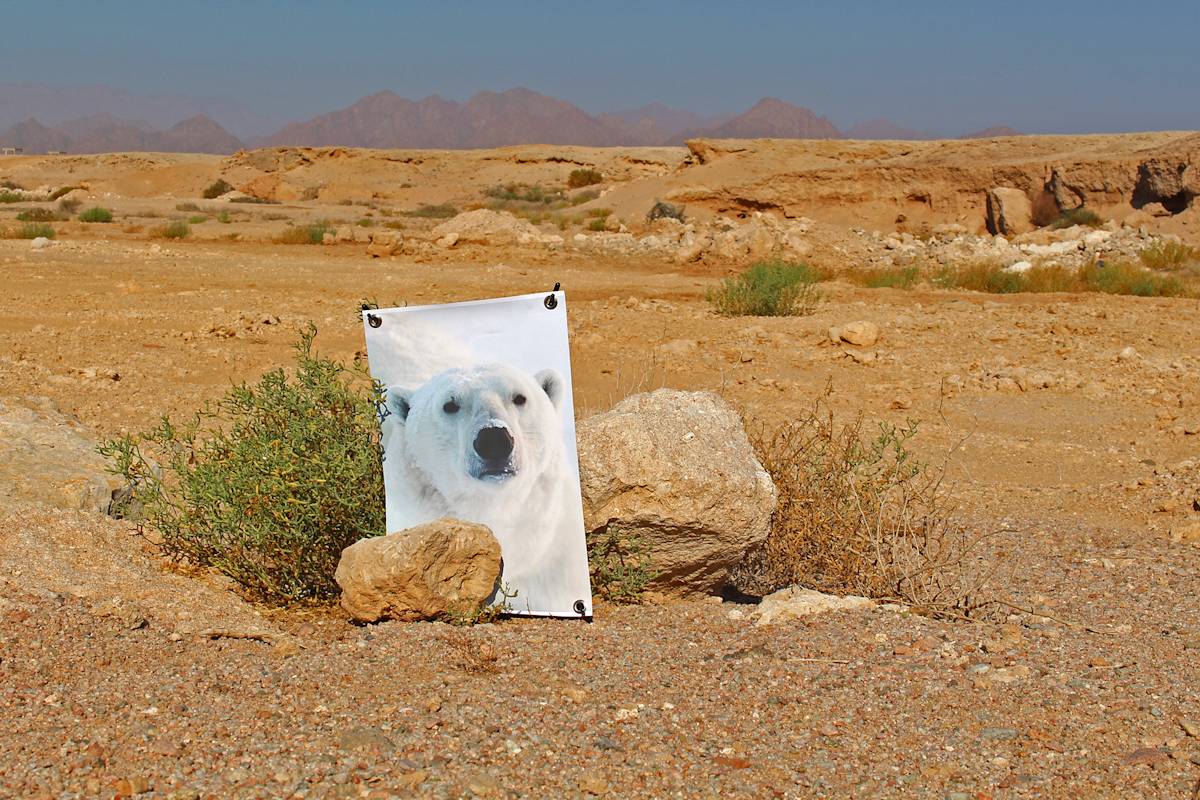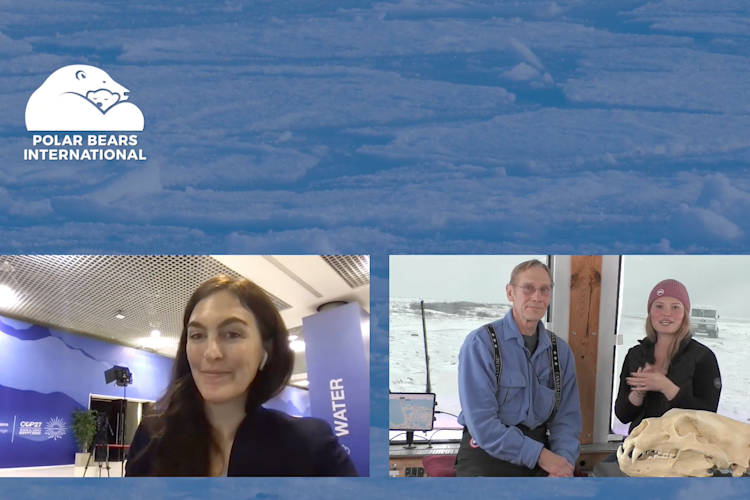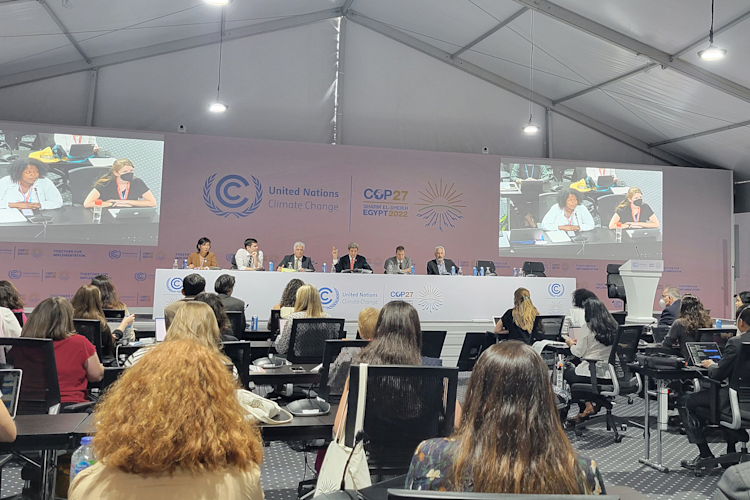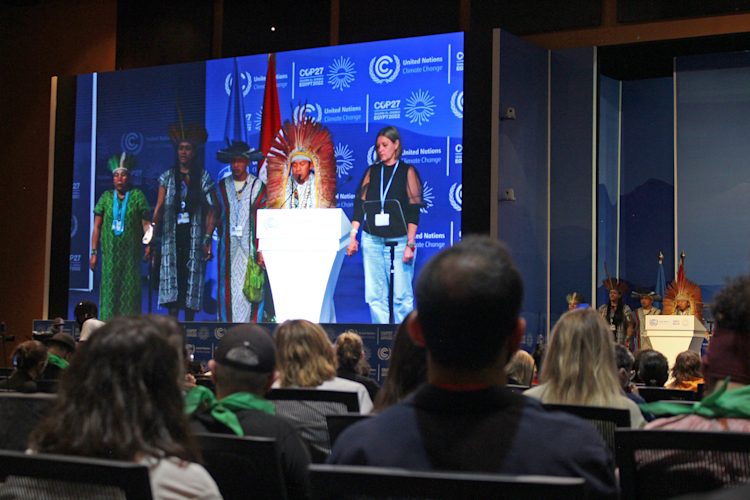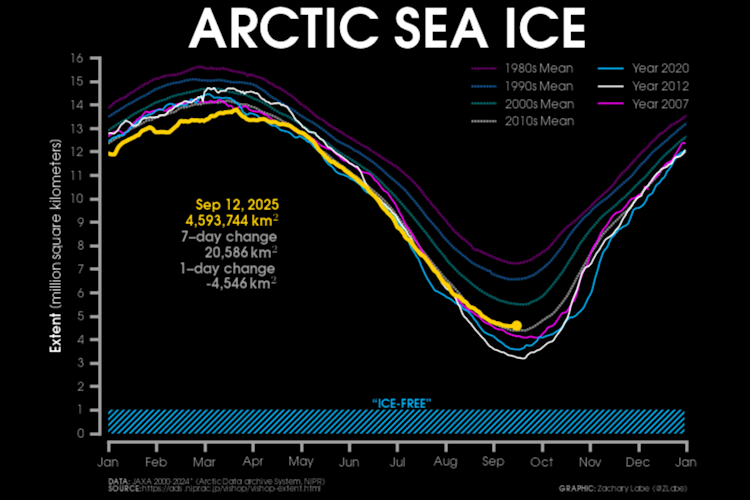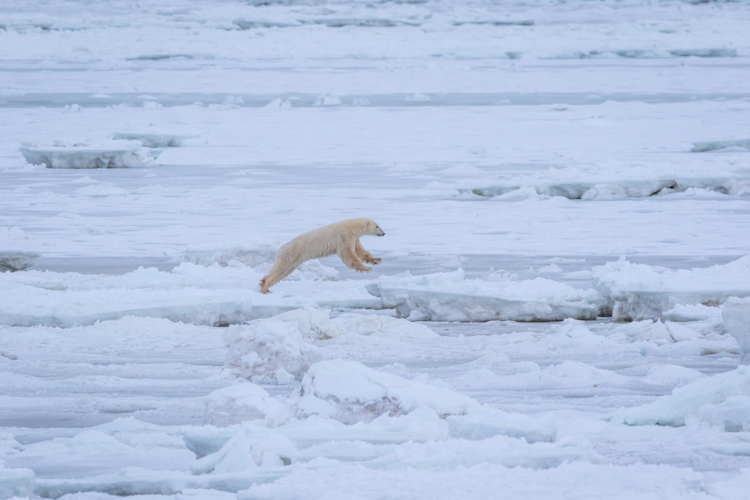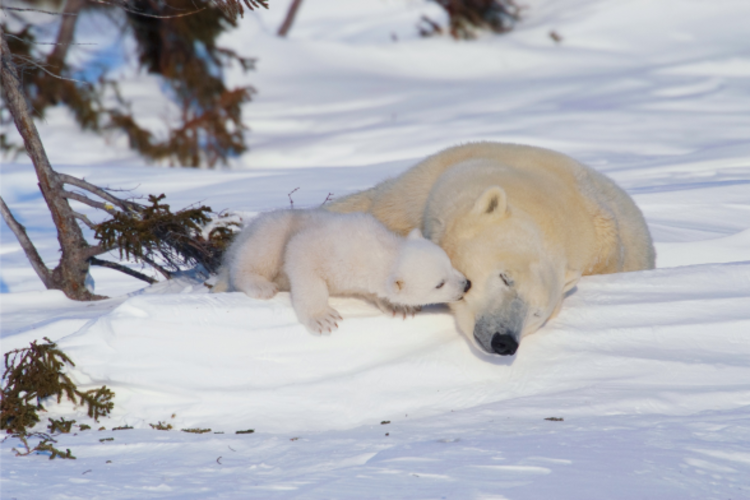Every year, world leaders from nearly 200 countries gather for the United Nations Climate Talks to make commitments and plans for addressing our greatest shared threat, climate change. Polar Bears International was on the ground at the 27th meeting of these parties in Sharm el-Sheikh, Egypt—also known as COP27—because what happens at these negotiations impacts the future of polar bears across the Arctic. Global climate warming, caused by burning fossil fuels for energy, is melting the sea ice polar bears depend on.
As the final gavel came down at 9:19am on Sunday, November 20th (39 hours later than planned), a new global climate pact—The Sharm el-Sheikh Implementation Plan—took effect. In positive news, this plan establishes a fund that will help poor, vulnerable countries cope with climate disasters. In disappointing news, the agreement falls short of adequately addressing the greenhouse gas emissions that are at the root cause of climate change. See the end of this article for a high-level overview of COP27 outcomes and shortcomings.
Most often, negotiations and agreements at this scale are not a complete solution to the challenge they seek to solve, and mixed results are certainly a recurring pattern at the Climate Talks. Year after year, we see countries making progress on one front and promising future action while simultaneously falling short on previous commitments. This cycle is maddening against the backdrop of climate change, and yet this forum is an essential piece of the larger climate action puzzle. Since the first meeting in 1995, UN Climate negotiations have brought the planet’s projected warming from 6℃ to 2.4℃. The Paris Agreement’s goal is to limit global warming to well below 2℃, preferably to 1.5℃. We still have a lot of work to do to protect the people and places we love from harm caused by climate change, and every fractional reduction of emissions achieved by these negotiations matters.
Rightfully so, many are disheartened and frustrated that the world’s countries did not commit to stronger climate action plans this fall. These failures will have real costs for global communities, wildlife, and ecosystems. Current commitments by the world's countries to reduce emissions will not secure a livable future for polar bears and most of us on this planet.
But importantly, climate action does not stop at the U.N. Local communities and governments, as well as corporations, hold equally important levers of power and can play a big role in speeding up our transition to cleaner and decentralized energy. We need systemic change across all sectors, at all scales—and each of us, in our corner of the world, influences some system at some scale. Every vote, every call applies pressure for tangible moves towards a just energy transition. Every community project based in local leadership and serving regional ecosystems builds a brighter future.
As the lead representative for environmental nonprofits at the COP27 People’s Plenary said:
“We’ve always known that this will never be won in the negotiating halls alone. It will only be won by the power of our movement, and our refusal to say that our lives and the lives of our brothers and sisters around the world are disposable. For us, they are non-negotiable. Together, we offer love. We offer hope. Not just dreams of a better world, but the reality of a better world.”
